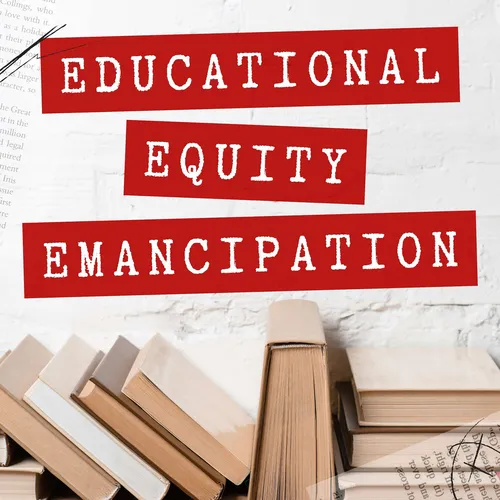Ep 50: Embrace Linguistic Diversity: Empower ELLs by Recognizing African AVE and Chicano English
- Author
- Dr. Almitra L. Berry
- Published
- Thu 20 Jul 2023
- Episode Link
- None
Join Dr. Berry as she immerses us in the captivating realm of African American Vernacular and Chicano English. Prepare to uncover the fascinating truth behind the meticulously structured grammar, pronunciation, and usage rules that define these distinctive dialects. Journey through the intricate tapestry woven by African, Spanish, and English influences, shaping the vibrant languages we'll delve into. Discover the art of indirect communication, reflecting profound cultural values such as respect and courtesy. Together, let's recognize and celebrate the invaluable diversity of languages in our classrooms and communities. Get ready to be amazed by the power of language!
Key Takeaways:
Numerous words of African and Spanish origin are used in English conversations, reflecting the influence of enslavement, migration, and immigration in developing these sociocultural languages.
African American Vernacular and Chicano English are fully developed and systematic dialects of English with their own grammar, pronunciation, and usage rules.
African American Vernacular and Chicano English are distinct languages with their own identities.
Not all Mexican Americans speak Chicano English, not all Black Americans speak African American Vernacular English, as language use varies among individuals based on factors like region, socioeconomic status, and age.
Recognizing and valuing socio-cultural English in the classroom promotes inclusivity, validates students' cultural identities, and creates a positive learning environment.
Strategies for supporting emergent bilingual learners who speak African American Vernacular and Chicano English include recognizing their bilingualism, encouraging code switching and translanguaging, practicing culturally responsive teaching, fostering collaboration and peer support, and differentiating instruction and assessment.
Language is a reflection of our history, culture, and experiences. By embracing and celebrating the diverse linguistic tapestry in our classrooms, we create spaces where every student feels seen, heard, and valued. As educators, it is our responsibility to recognize and honor the socio-cultural English spoken by our emergent bilingual learners. Tune in to this episode and let us bridge the gap between languages, validate cultural identities, and empower our students to succeed in a diverse world.
Link for the Handout: https://acrobat.adobe.com/link/track?uri=urn:aaid:scds:US:b7a2df19-c0ec-326a-966a-6d2471b22ff6
Follow me on my social handles.
FB: @almitraberry
IG: @almitraberry
LI: @almitraberry
YT: @almitraberry
Don't forget to get a FREE copy of "Roadmap to Emancipation" by visiting www.3epodcast.com. If you have questions that you would like answered in the upcoming episodes, please feel free to ask me through www.askdrberry.com.
Join our community. Go to patreon.com/almitraberry and sign up for our weekly newsletter and exclusive content.
